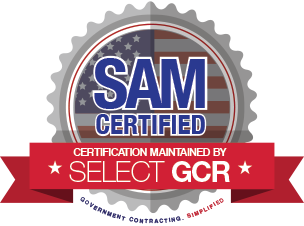Commercial buildings are complex, and with that complexity often comes a variety of plumbing issues. While some problems may seem minor, they can escalate quickly if not addressed. That’s why it’s important to understand the most common commercial plumbing problems and how to tackle them before they lead to bigger, more expensive repairs. In this article, we will look at the top five plumbing issues in commercial properties and provide some helpful tips on how to fix them.
1. Clogged Drains and Toilets
One of the most common issues is clogged drains or toilets. Due to heavy usage in places like office buildings, restaurants, and schools, it’s no surprise that drains and toilets get blocked.
Causes:
- Accumulation of waste, hair, soap, or other debris.
- Items being flushed down that shouldn’t be, like paper towels or hygiene products.
- Oil and food particles in kitchen drains.
Fix: The best way to clear a minor clog is to use a plunger. For tougher blockages, a drain snake or auger can be effective. Chemical drain cleaners can work in some cases, but they should be used sparingly, as frequent use can corrode pipes. If clogs persist or worsen, calling a commercial plumbing service is the best solution. Professionals have the right tools and expertise to handle severe clogs.
2. Leaking Pipes
Leaking pipes can cause major water damage to your commercial property and lead to high water bills. Even a small leak, if left unattended, can cause big problems over time, including mold growth and structural damage.
Causes:
- Corrosion in older pipes.
- Cracks or fractures due to high water pressure.
- Shifting of building foundations.
Fix: Small leaks can sometimes be temporarily fixed with pipe tape or a patch, but these are only stopgap solutions. If you notice water spots on ceilings, walls, or puddles under sinks, it’s best to contact a commercial plumbing professional. They can locate the source of the leak and fix it before it causes serious damage.
3. Low Water Pressure
Low water pressure can be incredibly frustrating, especially in commercial kitchens or restrooms where efficient water flow is crucial. It’s a common issue that can affect multiple faucets and fixtures across the property.
Causes:
- Clogged or corroded pipes.
- Leaks somewhere in the plumbing system.
- Issues with the building’s water supply, like a faulty pressure regulator.
Fix: First, check to see if only one faucet is affected; if so, clean the aerator or replace it. For more widespread low pressure, there may be a bigger problem such as a leak or pipe corrosion. This is where a professional inspection comes in handy. A commercial plumbing contractor can diagnose the root cause of low water pressure and fix it efficiently.
4. Water Heater Issues
A malfunctioning water heater can disrupt business operations, especially in facilities that rely on hot water for cleaning, cooking, or other processes. Water heaters in commercial buildings tend to break down more frequently than those in homes because of their higher demand.
Causes:
- Sediment build-up in the water tank.
- Faulty thermostat or heating element.
- Improper installation or outdated equipment.
Fix: Regular maintenance is key to preventing water heater issues. Draining and flushing the tank can remove the sediment buildup while checking the thermostat can resolve inconsistent water temperatures. However, if your water heater is old or constantly experiencing problems, it may be time to replace it with a more efficient model. Calling in a commercial plumbing service for installation and regular maintenance can prevent future breakdowns.
5. Sewer Line Blockages
Sewer line blockages are a serious issue that can cause foul odors, slow drains, and even sewage backups. This is especially problematic in commercial settings where multiple restrooms are in use throughout the day.
Causes:
- Tree roots invading the sewer line.
- Accumulation of grease, waste, and non-biodegradable materials.
- Pipe collapses or breaks due to aging infrastructure.
Fix: Sewer line blockages are tricky and require professional attention. Commercial plumbers can use high-pressure water jetting to clear blockages or, in severe cases, dig up and replace damaged pipes. Preventing this issue involves regular inspections and not flushing inappropriate items down toilets.
When to Call a Commercial Plumbing Service
While it may be tempting to try DIY fixes, some plumbing issues in commercial buildings require the skills of a professional. Licensed have the tools, experience, and knowledge to tackle these problems efficiently and prevent them from getting worse.
If you’re experiencing any of these common plumbing problems or want to prevent them, contact a professional commercial plumbing service for a thorough inspection and repair. Regular maintenance can also help catch issues before they become costly.

